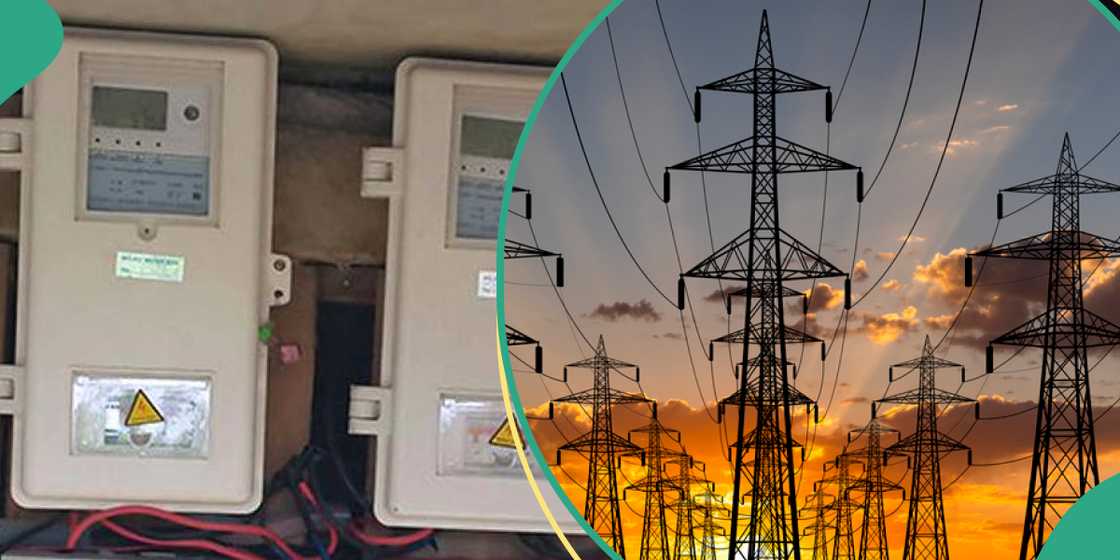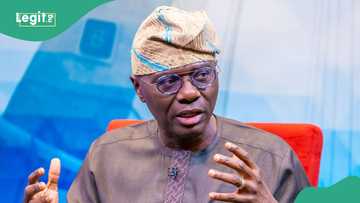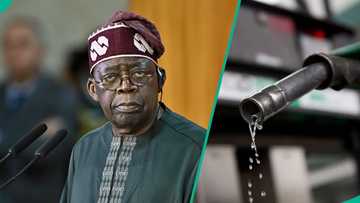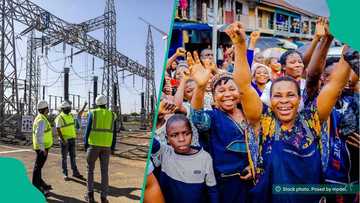FG Sets New Financial Condition for IE, EKDC, Ibadan Disco, Others’ Licence Renewal
- It will no longer be business as usual for Nigeria’s electricity distribution companies (DisCos)
- The Federal Government unveiled sweeping reforms in the power sector, introducing new financial conditions for DisCos
- According to the minister of Power Adebayo Adelabu, each company must now show a defined capital adequacy ratio before renewal.
Pascal Oparada is a journalist with Legit.ng, covering technology, energy, stocks, investment, and the economy for over a decade.
The Federal Government has unveiled a new regulatory measure that will require electricity Distribution Companies (DisCos) to meet a minimum capital adequacy requirement before their licences can be renewed.
Minister of Power, Adebayo Adelabu, disclosed this at the Nigeria Energy Forum in Lagos, themed “Powering Nigeria through Investment, Innovation, and Partnership.”

Source: Getty Images
Although he did not specify the capital thresholds, Adelabu said the move is to strengthen the financial health and liquidity of the utilities, which have long suffered from under-capitalisation and debt overload.

Read also
Sanwo-Olu shares ₦2.7bn to 10,000 Lagos households as FG expands ₦75,000 cash transfer nationwide
“As the tenure of their operational licences approaches renewal, the government will introduce a minimum capital adequacy requirement to ensure financial sustainability across the sector,” the Minister announced.
Power sector reform: A multi-pronged agenda
Since assuming office in 2023, Adelabu has championed a multi-pronged reform strategy anchored on legislation, infrastructure development, energy transition, and local content.
Central to this is the Electricity Act 2023, which has granted 15 states regulatory autonomy to establish subnational electricity markets, a major step toward decentralising power supply.
According to a report by Daily Sun, the newly approved Integrated National Electricity Policy marks Nigeria’s first comprehensive power policy in nearly two decades, designed to liberalise the market and attract private capital.
“We are working closely with states to align wholesale and retail markets while encouraging state involvement, especially in off-grid projects,” he said.
Market stabilisation and debt clearance
Adelabu announced that President Bola Tinubu has approved a ₦4 trillion bond to clear verified debts owed to generation companies (GenCos) and gas suppliers. This, he said, will help restore liquidity and investor confidence.
He added that power sector revenue rose 70 percent in 2024 to ₦1.7 trillion, thanks to cost-reflective tariffs and improved supply reliability, with projections exceeding ₦2 trillion in 2025.
The minister also revealed plans for a targeted subsidy to shield vulnerable households as the sector transitions to full commercialisation.
Infrastructure drive and metering push
Adelabu confirmed the signing of contracts for Phase One of the Presidential Power Initiative (PPI), which aims to add 7,000MW of new operational capacity.
Nigeria’s average generation capacity has increased from 4,200MW in 2023 to 5,300MW in 2024, supported by the integration of the 700MW Zungeru Hydropower Plant and rehabilitation of National Integrated Power Projects (NIPP) plants.
To address widespread metering gaps, the government has launched the Presidential Metering Initiative, with ₦700 billion earmarked to deploy 1.1 million meters by 2025
Another major reform is the unbundling of the Transmission Company of Nigeria (TCN) into two entities, the Nigerian Independent System Operator (NISO) and the Transmission Service Provider (TSP), to separate market operations from infrastructure management.
Call for private investment
Adelabu made a passionate appeal to investors, noting that over 10 gigawatts of stranded generation capacity remain untapped.
“We are open to strategic partnerships to mobilise the necessary investments. Our policy environment is clear, market fundamentals are improving, and leadership commitment is strong,” he assured.
With these sweeping reforms, the government aims to reposition Nigeria’s power sector for sustainability, efficiency, and long-term growth, a signal that the era of business-as-usual for DisCos is coming to an end.
However, energy experts are divided over the new policy.
While some agree that the move will improve power supply, others say it will create unnecessary drag in the system and discourage investment.
“Most of these DisCos were licensed without due diligence. After 10 years, the power issue in Nigeria has remained the same, if not worse. So, the new condition will keep the DisCos on their toes,” Osas Igho, energy and financial expert, told Legit.ng during a call.
“The federal government should be careful with the new policy. This could discourage investment and deter new entrants. Instead of immediate implementation, the government should introduce a phased model for the DisCos to raise their capital gradually,” Adeola Yusuf, energy policy analyst, said.

Read also
UK removes tariffs on 3,000 Nigerian products as Nigeria enforces reciprocal ban on US imports
The new policy came as the federal government was considering an electricity subsidy for poor Nigerians.
The federal government announced that it is formulating a targeted electricity subsidy framework designed to protect low-income and vulnerable households, while safeguarding the long-term commercial viability of Nigeria’s power sector.

Source: Getty Images
The minister of Power, Chief Adebayo Adelabu, disclosed this during the Nigeria Energy Forum 2025 held in Lagos on Tuesday, October 28.
Nigeria to introduce pay-as-you-go electricity payment
Legit.ng earlier reported that as part of its efforts to discontinue government-sponsored subsidies for the sector, the federal government has announced plans to implement a pay-as-you-go model for electricity consumption payments.
Wale Edun, the minister of Finance and coordinating minister of the Economy, made the announcement on Thursday during a media briefing in Abuja.
The minister also revealed that, during the first half of the year, the amount of revenue allotted to subnational governments jumped from N2.1 trillion to nearly N7 trillion.
Proofreading by Funmilayo Aremu, copy editor at Legit.ng.
Source: Legit.ng




